Description
ABSTRACT
From Valucard to Upay Card: Examining the Nature, Abuses and Legal Implications of Payment Cards in Nigeria
Aina Ololade Salami*
This study examines the era of ValuCard and Upay Card banking transactions from the perspective of law in Nigeria. The study contends that while the era of card system in the banking sector is a welcome development, it is also susceptible to cyber abuse and crime. The paper investigates the nature of payment cards in relation to the legal position on legal tender and negotiable instruments in Nigeria vis-a-vis cash payments and other negotiable instruments. Given the potential abuses, the study examines the legal implication in relation to some criminal offences. The study concludes that there is an urgent need for institutional and regulatory reforms regarding crimes relating to the card banking system in Nigeria.
Keywords: Banking, Payment cards, Reforms, Card system
INTRODUCTION
Globally, cash payment as a form of transaction settlement is gradually losing its allure. In its place, other payment systems such as credit and debit cards (also known as plastic money), wire transfers, or electronic transfers have emerged.1 Smart cards are now used for a variety of applications, from telephony to transportation, to health care; Smart cards have indeed been found to be capable of a wide variety of applications.2 Initially piloted and made popular in France, almost three decades ago, the first real applications of the smart card appeared in that country when the French banking sector, with the full support of the Government, rolled out some 16 million cards, followed a year later by a million phone cards.3 This was emulated in other developed countries such as the United States’ City Bank, Chase Manhattan Bank, Visa International and Master Cards International and many others.4 This modern plastic card is now the fastest-growing transaction settlement system globally and is finding attraction and deserving attention.5
In Nigeria, the hitherto most predominant payment system has given way to plastic card transactions. As expected, the apex financial institution in Nigeria, the Central Bank of Nigeria (CBN), had made various attempts to encourage the use of cheques as a form of transaction…
* LL.B, BL, LL.M. Formerly Senior lecturer, Department of Public Law, Faculty of Law, University of Lagos, Nigeria. He is presently the Special Adviser and the Director General, Bureau of Lands & Survey, Abeokuta, Ogun State
- The literature is considerate but see ST Middlebrook & SJ Hughes, ‘Virtual Uncertainties: Developments in the Law of Electronic Payments & Financial Services’ (2013) 69(1) The Business Lawyer 263–273; JK Winn, ‘Clash of the Titans: Regulating the Competition between Established and Emerging Electronic Payment Systems (1999) 14(2) Berkeley Technology Law Journal 675–709; JJ Angel & D McCabe, ‘The Ethics of Payment: Paper, Plastic, or Bitcoin’ (2013) 132(3) Journal of Business Ethics 603–611.
- See K Young, ‘Smart Card; Fantastic Plastic’ [1999] African Review 12.
- ibid
- ibid
- See O Ajayi, ‘Leap Frogging the African Economy into the 21st century through Electronic Smart Cards: The Legal Perspectives’ (1998) 2(2) Modern Practice Journal of Finance and Investment Law, 113–131. Also on the Valucard Scheme, The Guardian (Nigeria 21 June 2000) 31.

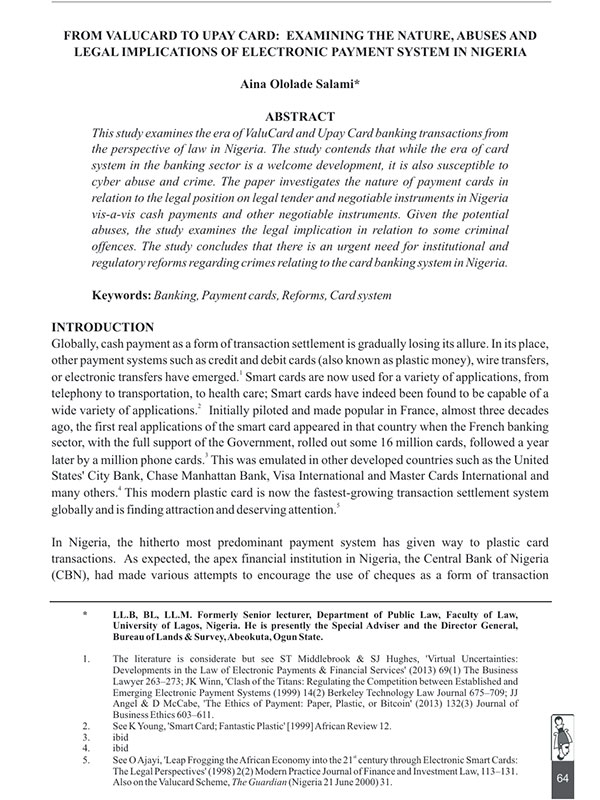
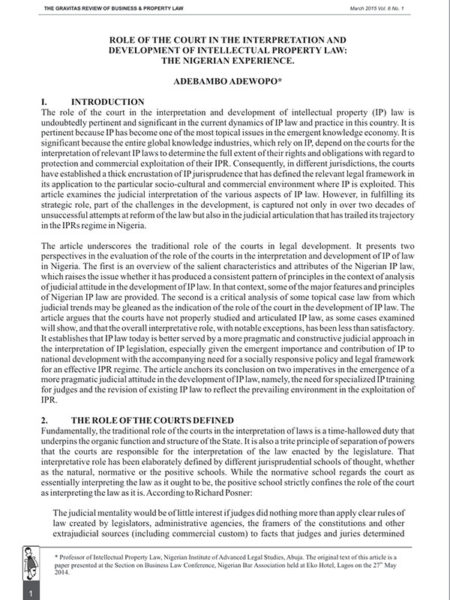
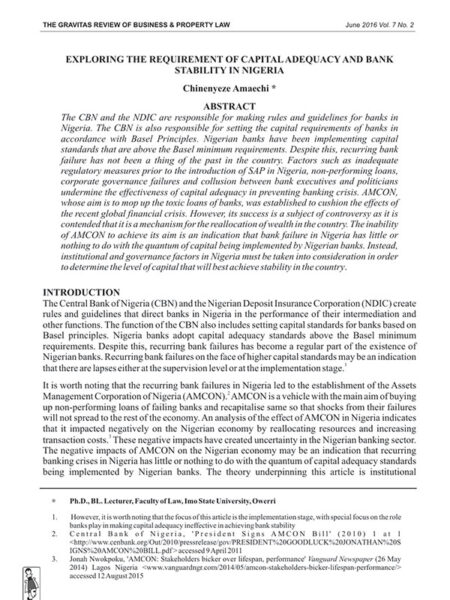
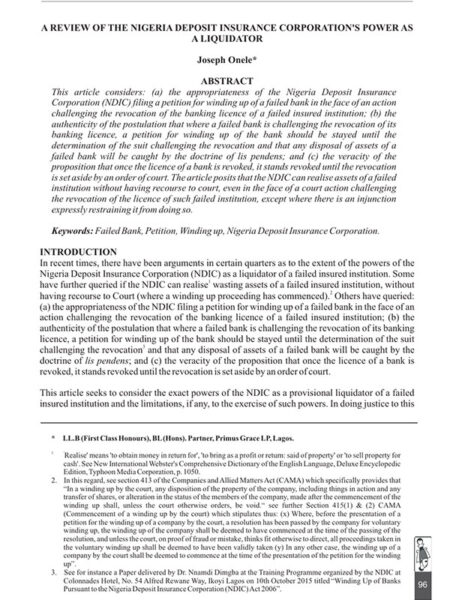
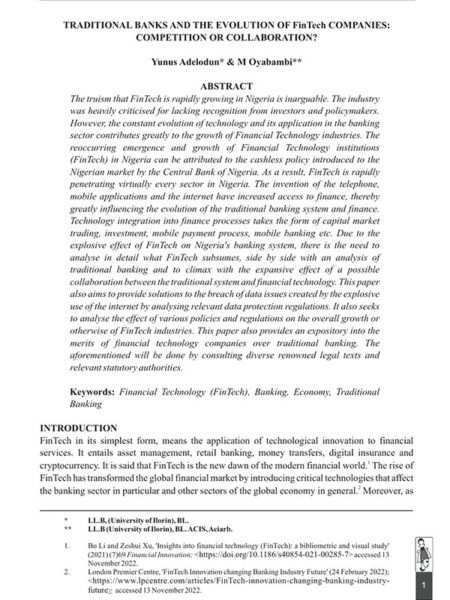


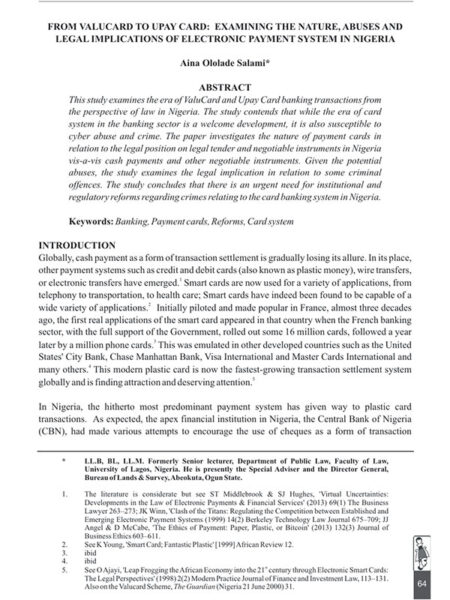
Reviews
There are no reviews yet.